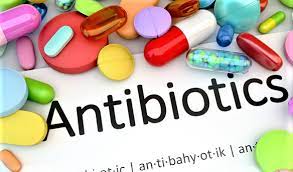According to News Medical, an online open-access medical and life science portal, a healthy vaginal flora protects the body against urogenital infections.
“It is made up of many different types of bacteria, the predominant bacteria being lactobacilli.
“These beneficial or “good” bacteria play a key role in defending against infection. Lactobacilli provide protection against microbes from the external environment, as well as microbes that reside in the vagina”, says News Medical.
Speaking in an interview with PUNCH HealthWise, a Consultant Obstetrician and Gynaecologist at the Nnamdi Azikiwe Teaching Hospital, Akwa, Anambra State, Dr. Stanley Egbogu, said no known antibiotics can prevent pregnancy.
Egbogu said, “Using antibiotics as contraceptives is not science-based.
Unfortunately, a lot of women are doing it. Some even take antibiotics with quinine tablets. High doses of quinine can kill the embryo- a formed baby though quinine is antimalarial and not antibiotic. Quinine is used in treating malaria in pregnant women.
“But when a person takes an excessive dose, it can lead to abortion. Hence, some people say it is an abortifacient.
“That is why when you prescribe it for some women, they become afraid because they know it can cause abortion. But antibiotics can’t be used to prevent pregnancy.
“It is totally wrong for women to take antibiotics after sex. It is a waste of money and resources. It can cause antibiotic resistance.”
The gynaecologist also noted that excessive antibiotic intake by women could affect their normal vaginal flora.
“In a woman’s private area, there are some anti-bacteria that normally inhabit there.
“Those bacteria are not harmful to the woman; instead they prevent harmful bacteria from coming to live there. Now, when you take excessive antibiotics, they can kill those normal bacteria that are protective and cause the pathogenic ones to come and live in the vagina. This can also lead to candidiasis and bacterial vaginosis,” he stated.
He urged women still in the habit to desist from it, warning that antibiotics abuse comes with severe health consequences.
According to an online news portal, WebMD, bacterial infections are one of the most common causes of infertility in both men and women. Sexually transmitted infections like chlamydia and gonorrhoea, the online portal says, can damage the uterus, ovaries, and fallopian tubes in women, and the tubes that sperm travel through in men.
“Sometimes these infections don’t cause symptoms. You may not even know you have an STI. Without treatment, bacteria can spread to the uterus, ovaries, or fallopian tubes and cause pelvic inflammatory disease.
“PID can leave scars in the fallopian tubes. Those scars might block the tubes and prevent an egg from travelling down them to be fertilised”, WebMD said.
It further noted, “Only bacterial infections can be killed with antibiotics. The common cold, flu, most coughs, some bronchitis infections, most sore throats, and the stomach flu are all caused by viruses. Antibiotics won’t work to treat them.
According to the World Health Organisation, antibiotics are becoming increasingly ineffective, as drug resistance spreads globally leading to more difficulty to treat infections and death.
“New antibacterials are urgently needed – for example, to treat carbapenem-resistant gram-negative bacterial infections as identified in the WHO priority pathogen list. However, if people do not change the way antibiotics are used now, these new antibiotics will suffer the same fate as the current ones and become ineffective,” says WHO.
Also, a resident doctor at the Department of Obstetrics and Gynaecology, The Eko Hospital, Lagos, Dr. Amara Nwabulue, told PUNCH HealthWise that some women engage in many unscientific practices, like taking antibiotics in a bid to prevent pregnancy, warning that such practices could affect their reproductive organs.
“I have actually heard about women doing a whole lot of things to prevent pregnancy after having sex, including consuming high doses of vitamin C. They will tell you to take a particular carbonated drink. Sometimes, they will tell you to wash your vagina after sex or use antibiotics.
“But the truth is that those things do not work. It is just their thought. When you take antibiotics, it gets to the stomach and the body absorbs it; it gets to the blood. There is no business between the blood and the womb. Even if you take antibiotics in excess, it has no business in preventing pregnancy,” Nwabulue said.
source: HealthWise

 Women taking antibiotics after having unprotected sexual intercourse to prevent pregnancy are wasting their time and money, maternal health experts have said. The experts said antibiotics can’t be used as contraceptives, adding that there is no scientific evidence to back their effectiveness in preventing pregnancy, even when used immediately after sexual intercourse
Women taking antibiotics after having unprotected sexual intercourse to prevent pregnancy are wasting their time and money, maternal health experts have said. The experts said antibiotics can’t be used as contraceptives, adding that there is no scientific evidence to back their effectiveness in preventing pregnancy, even when used immediately after sexual intercourse




